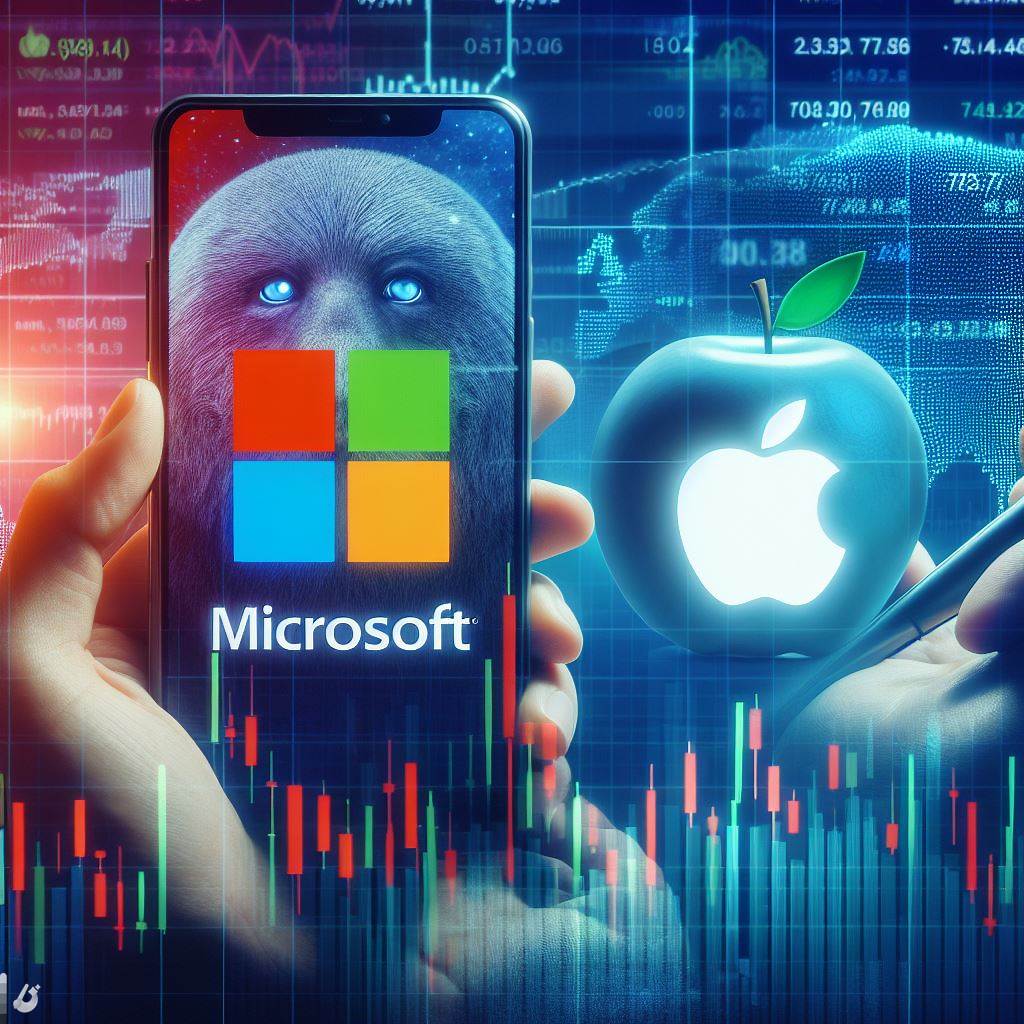
Microsoft's stock market value surpassed that of Apple for the first time since 2021 on Friday, marking it as the world's most valuable company. Apple's shares faced concerns about demand, causing a 0.2% decline, while Microsoft saw a 1% increase. Microsoft's market capitalization reached $2.887 trillion, a record high, compared to Apple's $2.875 trillion.
Apple's shares have experienced a 3% decline in 2024, influenced by worries about smartphone demand, particularly for the iPhone, following a remarkable 48% surge in 2023. Meanwhile, Microsoft has risen approximately 3% year-to-date, building on a 57% surge in 2023, driven partly by its leadership in generative artificial intelligence through investments in OpenAI, the maker of ChatGPT.
Microsoft's incorporation of OpenAI's technology into its productivity software has contributed to a rebound in its cloud-computing business. The company's advancements in AI have also positioned it to challenge Google's dominance in web search.
Apple, on the other hand, grapples with tepid demand, especially for the iPhone, with a slowdown in China's economy impacting its market share. Despite the upcoming launch of Apple's Vision Pro mixed-reality headset on Feb. 2, analysts estimate its impact on earnings to be relatively immaterial in 2024.
Microsoft briefly claimed the lead over Apple as the most valuable company several times since 2018, most notably in 2021 during concerns about supply chain shortages related to the COVID-19 pandemic.
Both tech giants, however, face relatively high valuations compared to their expected earnings. Apple's forward Price to Earnings (PE) stands at 28, well above its 10-year average of 19, while Microsoft trades around 32 times forward earnings, surpassing its 10-year average of 24.
As Apple prepares to report its results on Feb. 1, analysts forecast a 0.7% year-on-year revenue increase to $117.9 billion for the December quarter. In contrast, Microsoft, set to report in the coming weeks, is anticipated to reveal a 16% revenue increase to $61.1 billion, driven by sustained growth in its cloud business.